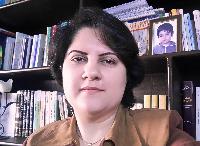Poll: When you have questions about a source text, when do you ask your client? Thread poster: ProZ.com Staff
|
|---|
This forum topic is for the discussion of the poll question "When you have questions about a source text, when do you ask your client?".
View the poll results »
| | | | Thayenga 
Germany
Local time: 04:53
Member (2009)
English to German
+ ...
If the question doesn't answer "itself" within the document, then I will ask my client. Of course, before delivering the translation.
| | | | neilmac
Spain
Local time: 04:53
Spanish to English
+ ...
With some clients who don't mind, I just send off the queries one by one by e-mail as they crop up, as this is how I prefer to do it. For example, this weekend I had to ask one client to clear up 5 or 6 points this way. Academic clients don't usually object to this modus operandi.
With other clients, who might perceive this approach as "pestering", I usually make up a list of the doubtful expressions and send it to the client for clarification when the first draft is ready.
| | | | Tim Drayton 
Cyprus
Local time: 05:53
Turkish to English
+ ...
I very rarely ask clients questions about the source text. With the sort of work I mainly do, I would not expect the client to know much about the text - that is why they are paying me good money to translate it, after all.
| | |
|
|
|
First, I try to keep my questions to a minimum, because I know they are an annoyance, even when they are important.
I had one client who encouraged translators to ask their questions while working on the text, which (1) allowed the client more time to find the answers, and (2) improved the efficiency of my task because I got the answers earlier and gained a better handle on the rest of the text.
However, my other clients don't have the luxury of being able to drop what ... See more First, I try to keep my questions to a minimum, because I know they are an annoyance, even when they are important.
I had one client who encouraged translators to ask their questions while working on the text, which (1) allowed the client more time to find the answers, and (2) improved the efficiency of my task because I got the answers earlier and gained a better handle on the rest of the text.
However, my other clients don't have the luxury of being able to drop what they're doing to do my research, so I simply query them when I deliver the job.
Even though the first approach is more effective, I prefer the latter because, as Thayenga pointed out, the answer often reveals itself as the translation progresses. I wouldn't want to ask a question if it turned out I was capable of answering it myself. It would be a waste of my client's time and make me look less competent. ▲ Collapse
| | | | Balasubramaniam L. 
India
Local time: 08:23
Member (2006)
English to Hindi
+ ...
SITE LOCALIZER | As they materialise | Dec 15, 2014 |
This is often important, because the way you resolve a certain ambiguity will have a crucial bearing on how you do the rest of the translation.
Putting off obtaining clarification on the ambiguity can result in your having to do the whole translation again, or revising the whole of it at a later stage. To avoid this, I immediately seek clarification on source text doubts.
| | | |
Depends on the problem and on the client… Like Muriel, I try to keep my questions to a minimum. Only last Friday, I was working on a longish text with a very comfortable deadline when I noticed that some words were missing from a paragraph. Before asking the client, I decided to read the rest of the text and, of course, I found the same problem later on… So, all my questions were put on the same email and answered this morning. For other clients, I just send off the queries one by one as the... See more Depends on the problem and on the client… Like Muriel, I try to keep my questions to a minimum. Only last Friday, I was working on a longish text with a very comfortable deadline when I noticed that some words were missing from a paragraph. Before asking the client, I decided to read the rest of the text and, of course, I found the same problem later on… So, all my questions were put on the same email and answered this morning. For other clients, I just send off the queries one by one as they arise. I must say, though, that problems like these are the exception rather than the norm…
[Edited at 2014-12-15 10:56 GMT] ▲ Collapse
| | | | | Gathering questions in packages | Dec 15, 2014 |
For small projects I usually resolve questions myself, if I have some doubts, I offer a number of options to my client.
When it comes to large several-months projects, I found it useful to gather some portions of questions into 'package' of reasonable size and then send it to my PM. It works much better than if I interrupt them on each separate question. And sure in this situation waiting for final stage of project would be useless due the project size.
| | |
|
|
|
Only once I have exhausted all other avenues, including consulting the stars
And then all in one hit
Before delivering, duh
| | | | | ask questions mostly individually / feedback | Dec 15, 2014 |
If the text is an academic one, questions often arrive. You have to examine and understand the text thoroughly, and this process tends to reveal any lack of clarity or obscure meaning. I try first to answer the questions myself, perhaps from reading ahead in the text or doing quick research in the internet.
If that doesn't help I will ask the author, often asking individual questions and making use of the email subject, because if you have 5 or 6 questions open and the person perhaps live... See more If the text is an academic one, questions often arrive. You have to examine and understand the text thoroughly, and this process tends to reveal any lack of clarity or obscure meaning. I try first to answer the questions myself, perhaps from reading ahead in the text or doing quick research in the internet.
If that doesn't help I will ask the author, often asking individual questions and making use of the email subject, because if you have 5 or 6 questions open and the person perhaps lives on the other side of the world you have to wait a while. I find academics are often quite grateful for this type of feedback. ▲ Collapse
| | | | Anne Bohy 
France
Local time: 04:53
English to French
| Comments in the source file, sent after translation | Dec 15, 2014 |
When translating a large document, if I see too many problems accumulating, I usually make a copy of the source document (into Word, if the format is inadequate) and add comments. Sometimes, my comments are simply a rewording of the source text, to make sure I understood correctly.
I wait until the end of the translation, then read again all my comments, and suppress all the problems that I've solved myself with further context, as well as the minor ones, because I want the client to focu... See more When translating a large document, if I see too many problems accumulating, I usually make a copy of the source document (into Word, if the format is inadequate) and add comments. Sometimes, my comments are simply a rewording of the source text, to make sure I understood correctly.
I wait until the end of the translation, then read again all my comments, and suppress all the problems that I've solved myself with further context, as well as the minor ones, because I want the client to focus on what I consider essential for the clarity and accuracy of the translation.
I send the file to the client before the final proofreading, which leaves him some time to provide a feedback. Of course, if the client requests a tight deadline, I expect him to provide his feedback more quickly too.
Unless the client requests me to wait, I submit my translation before the deadline, whether feedback or not.
Of course, if I see a major problem, I may blow the whistle earlier, but only in a few cases. ▲ Collapse
| | | | Mario Chavez (X) 
Local time: 22:53
English to Spanish
+ ...
| Questions about the source text | Dec 15, 2014 |
Isn't it obvious? Any intelligent person, translator or not, will make his/her questions known before or during the process, not afterwards.
Are we in 5th grade now? Such lack of imagination in asking poll questions. Appalling.
| | |
|
|
|
| If questions are necessary, then early | Dec 15, 2014 |
You want the client to have enough time to answer, and you need those answers to optimize your work. So I like to ferret out possible questions while examining the text before starting.
| | | | Noura Tawil 
Syria
Local time: 05:53
Member (2013)
English to Arabic
| One by one... | Dec 15, 2014 |
... usually. Because I can't take the query off my mind until I've got my answer.
However I ask the client, usually a PM, with the first question if he/she would prefer to receive my queries in batches (so they won't "annoy" their end client too much). Most of them welcome individual questions.
[Edited at 2014-12-15 18:46 GMT]
| | | | To report site rules violations or get help, contact a site moderator: You can also contact site staff by submitting a support request » Poll: When you have questions about a source text, when do you ask your client? | Trados Studio 2022 Freelance | The leading translation software used by over 270,000 translators.
Designed with your feedback in mind, Trados Studio 2022 delivers an unrivalled, powerful desktop
and cloud solution, empowering you to work in the most efficient and cost-effective way.
More info » |
| | TM-Town | Manage your TMs and Terms ... and boost your translation business
Are you ready for something fresh in the industry? TM-Town is a unique new site for you -- the freelance translator -- to store, manage and share translation memories (TMs) and glossaries...and potentially meet new clients on the basis of your prior work.
More info » |
|
| | | | X Sign in to your ProZ.com account... | | | | | |
















